
In the corner of the room, an impossibly small baby boy lay swaddled in a blanket, a tangle of cords and wires enveloping his body. Nurses and doctors talked in hushed voices, gingerly placing stethoscopes on tiny chests and gently folding micro-sized diapers around waists the width of your palm.
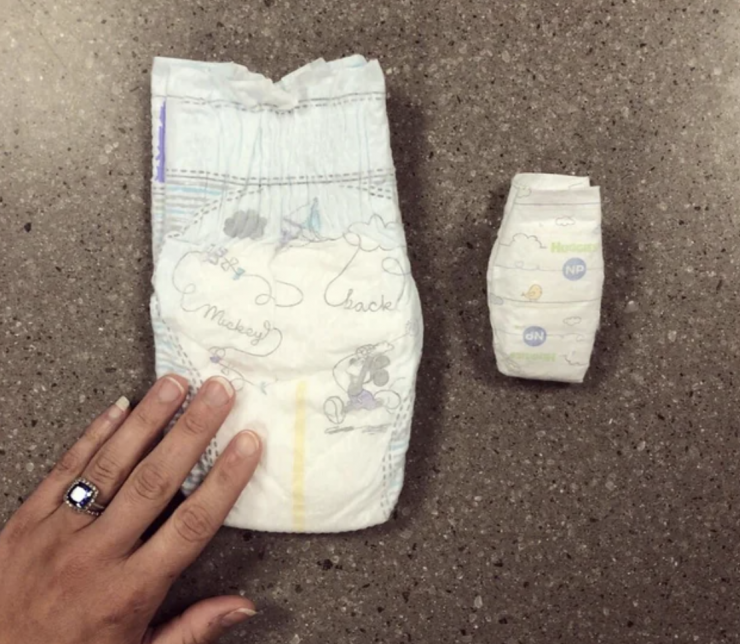
On even the most uneventful days, the NICU is a wealth of sensory overload. There is no privacy, no quiet moments alone with your newborn.
Rows of isolettes line the walls, with only a thin curtain separating one family from the next. When the machines sound their alarm, and the medical staff comes running, all those in the room have a first-hand look at private moments they wish they couldn’t see. The parents whose alarms stay silent close their eyes, a knot forming in their throats as they whisper prayers for the other babies.
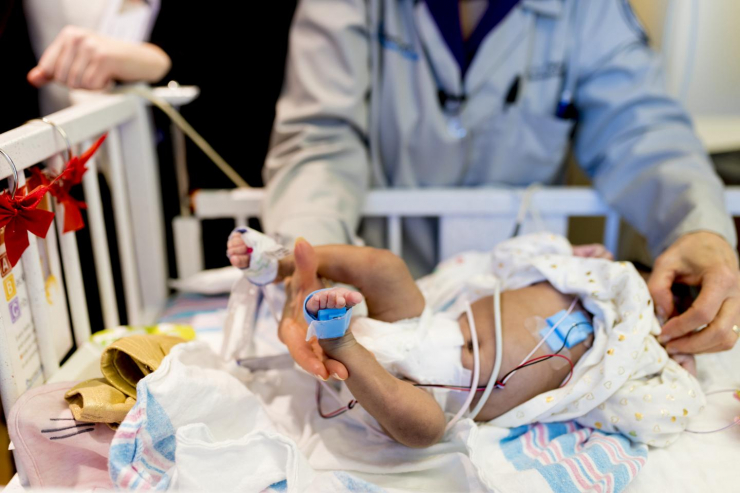
The NICU is a necessity that no family wants to need, but many rely on. Those who spend any length of time within its walls understand the fight or flight response that feels like a constant shift between the heaviest weight and brief moments of reprieve. The anxiety is always bubbling close to the surface. For Beth, her family’s NICU experience was best described in one word: unbearable.

“Desi had a very traumatic start in life,” she said. “He was born prematurely at 27 weeks, weighing only 2.5 lbs, at Prentice Hospital in Chicago. Desi was in the NICU for nine months fighting for his life, and there were many times when he almost didn't make it.”
“(My husband) Raynal and I turned Desi's NICU room into our home. When we weren't at work, we were at the hospital caring for Desi and training to care for his tracheostomy and g-tube, administer his medication and nutrition, manage his ventilator, and respond in emergency situations. During that time, we also learned that Desi was diagnosed with Partial Trisomy 18, a diagnosis that geneticists and doctors admitted they know little about.”
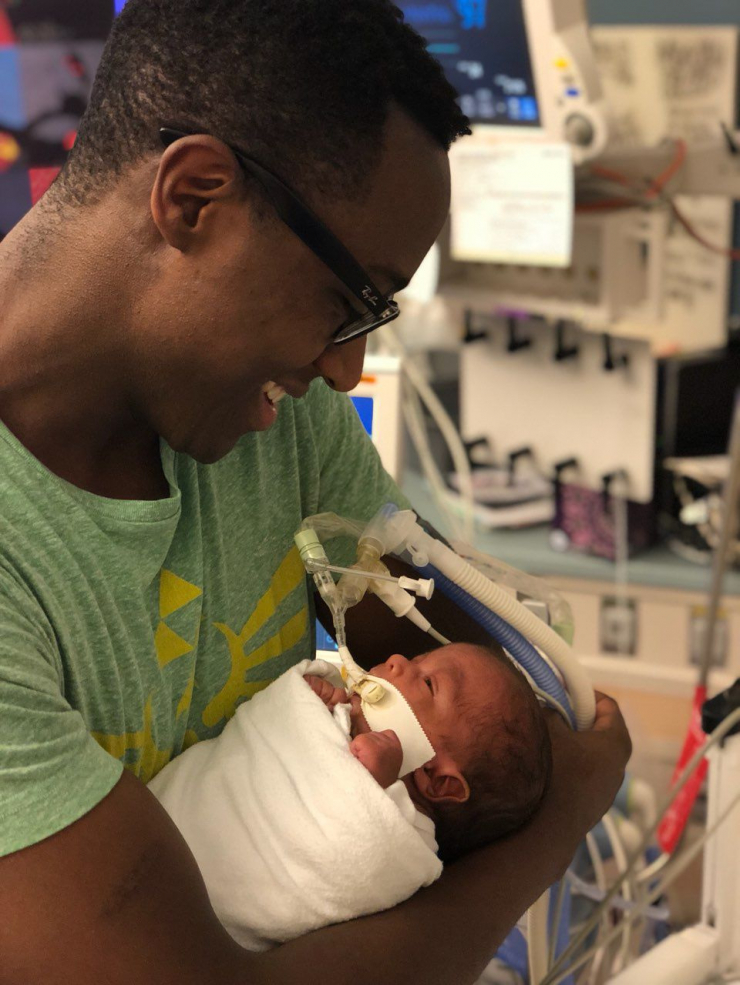
It’s a big enough change becoming a parent for the first time, but when you pair that with a premature birth and life-threatening medical diagnosis, it’s enough to drop anyone to their knees. Beth and Raynal did all they could to keep standing.
When the doctors delivered the diagnosis of Partial Trisomy 18, it came with a warning: “Don’t google it.” That’s because a search for Trisomy 18 (also called Edwards’ Syndrome) would reveal only devastating news – the condition has no known treatment and is often fatal within the first year of life.
But Partial Trisomy 18…well, that’s a bit different. As rare as Trisomy 18 is, the partial version is even more rare. A very small number of babies with Edwards’ syndrome (less than 1%) have only a section of the extra chromosome 18 in their cells, rather than a whole extra chromosome 18. Desi is one of them.
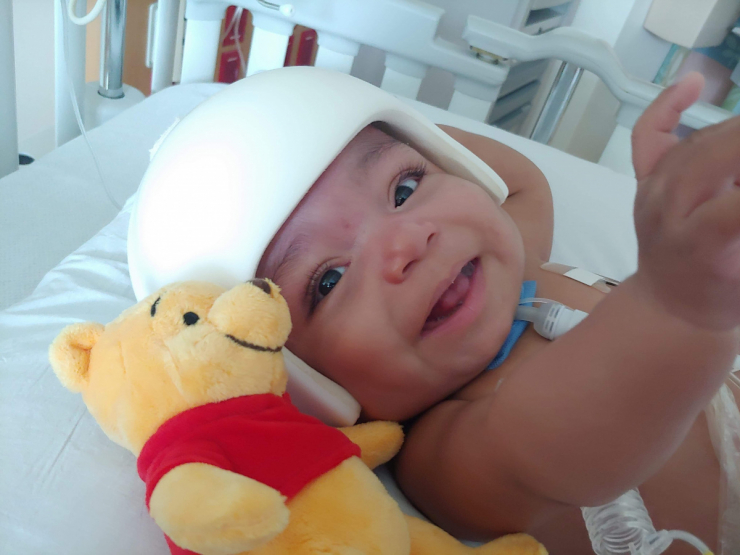
All the medical team could say was that Desi would show them what he could do, and what Partial Trisomy 18 would look like for him.
Step one was getting him out of the hospital and home with his family. That was no small feat, and many times, Beth and Raynal weren’t certain Desi would make it out of the hospital. It was such an intense time that Raynal was forced to drop out of his grad school program, and he eventually lost his spot entirely.
Beth continued working full-time for a nonprofit organization called Mercy Housing. She had no unpaid leave and stepping away from her role wasn’t an option for them.

She explained how her mind would switch between work and Desi, fielding unimaginable calls from the doctors as she and Raynal made life-altering decisions for Desi, and then having to switch back to completing her work for the day.
It was back to that constant fight or flight mode.

But during it all, Desi was showing what he could do. He’s incredibly resilient, and while his NICU stay was long and difficult, Desi worked really hard.
Eventually, he was strong enough to be released, and Beth and Raynal didn’t just leave as his parents – they left as his expert-level caretakers.

“That first year was intense,” Beth told us. “Desi belongs at home with us, but he also requires hospital-level care. He has a ventilator, sophisticated equipment, requires trach changes, and more. All of that is something nurses are trained to do…but we had to be trained, too.”
“Doing that while working and taking care of ourselves is difficult,” she continued.

Eventually, the pair realized that staying in Chicago wasn’t going to work long-term. Finding reliable and consistent at-home nursing care is something many of our recipient families battle, and they were no different.
As Beth explained, high-acuity nurses - those trained to care for kids with complex medical needs - aren’t paid more than other at-home nurses in Illinois. That made it really hard to find someone to care for Desi.

So, Beth, Raynal and Desi packed their things and headed south to North Carolina where Beth’s mom was ready and waiting to be his caregiver. His grandparents are a huge part of his life and wrap him in love and care each and every day.

To call the last few years a challenge would be a major understatement, but they’d do it all a thousand times for their boy.
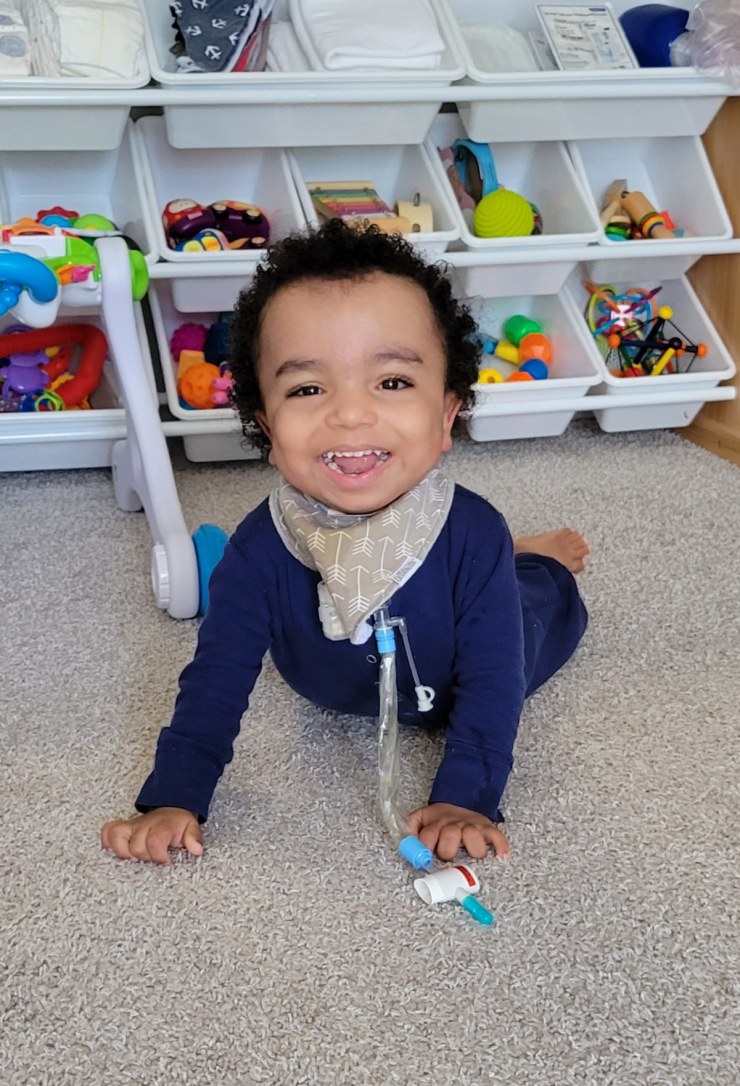
Desi is, quite simply, an amazing kid. He’s incredibly funny and smiles nearly all the time. If he had his way, he’d spend much of his day watching Sesame Street or doing his second-favorite activity: playing with water in the sink.

He’s had a rough journey, but Desi has continued to show what he can do. Now, it was time to show them what the Chive Charities community could do.
Desi is wheelchair-dependent, and because of his ventilator and other life-saving medical equipment, he hasn’t been able to leave his house for anything but doctor appointments or procedures.
Just a week or so ago, they all drove to Cincinnati for a two-week stay where Desi underwent a critical surgery. “He was ready to play the next day,” Beth laughed. “He’s so happy - so resilient.”

A few months ago, that trip would have been anxiety-inducing, and at the very least, uncomfortable for Desi. But Beth learned of Chive Charities and the incredible impact donors like you make possible through their current case manager, a special woman who suggested they apply and see if this organization might be able to help.
You, of course, responded in the way you’ve done for the last decade or more: You stepped in to serve those who need it most.
Through the support of our donor community, we were able to fund a 2019 Dodge Grand Caravan from our friends at AMS Vans for a total impact of $49,000.

That trip to Cincinnati for critical surgery was the maiden voyage. The second trip? His first visit to the park.

At the end of our call with Beth, she paused for a minute and stopped us. With a shaky voice, she took a deep breath and shared a sentiment that will be impossible to forget.
“This gift itself is amazing. But I think just knowing there are other organizations and people out there who are thinking about our families…it helps. It can be very isolating and we feel very hidden a lot of the time. People just don’t know about us. I was just really excited to see an organization that is really seeing these families, because I think oftentimes, we’re not seen. Just thank you for all that you do. It’s very meaningful.”

To each and every person who helped us make this possible, thank you for seeing them. If you’re not part of our community of heroes yet, we invite you to be. Oh, and as for the question about Desi and what he can do, we think you know the answer to that by now. Anything he wants.
DONATE HERE.




































-3__small.jpg)












































































































__small.jpg)










__small.jpg)






















































































_with_flag,_jason__emily_rowley-4__small.jpg)

































































































































-2__small.jpg)


























































































































































